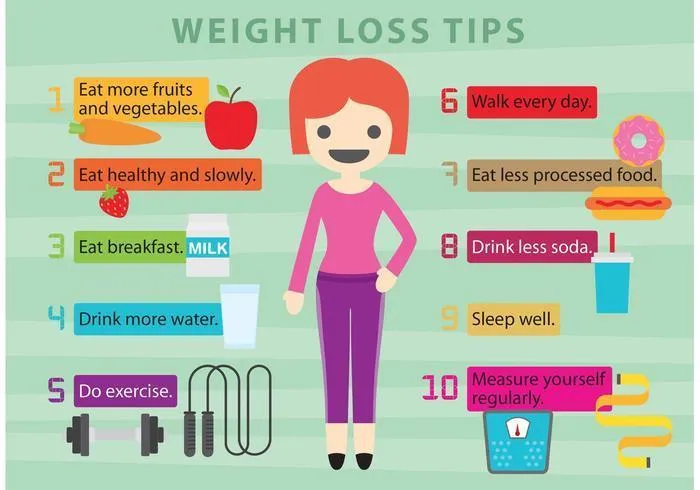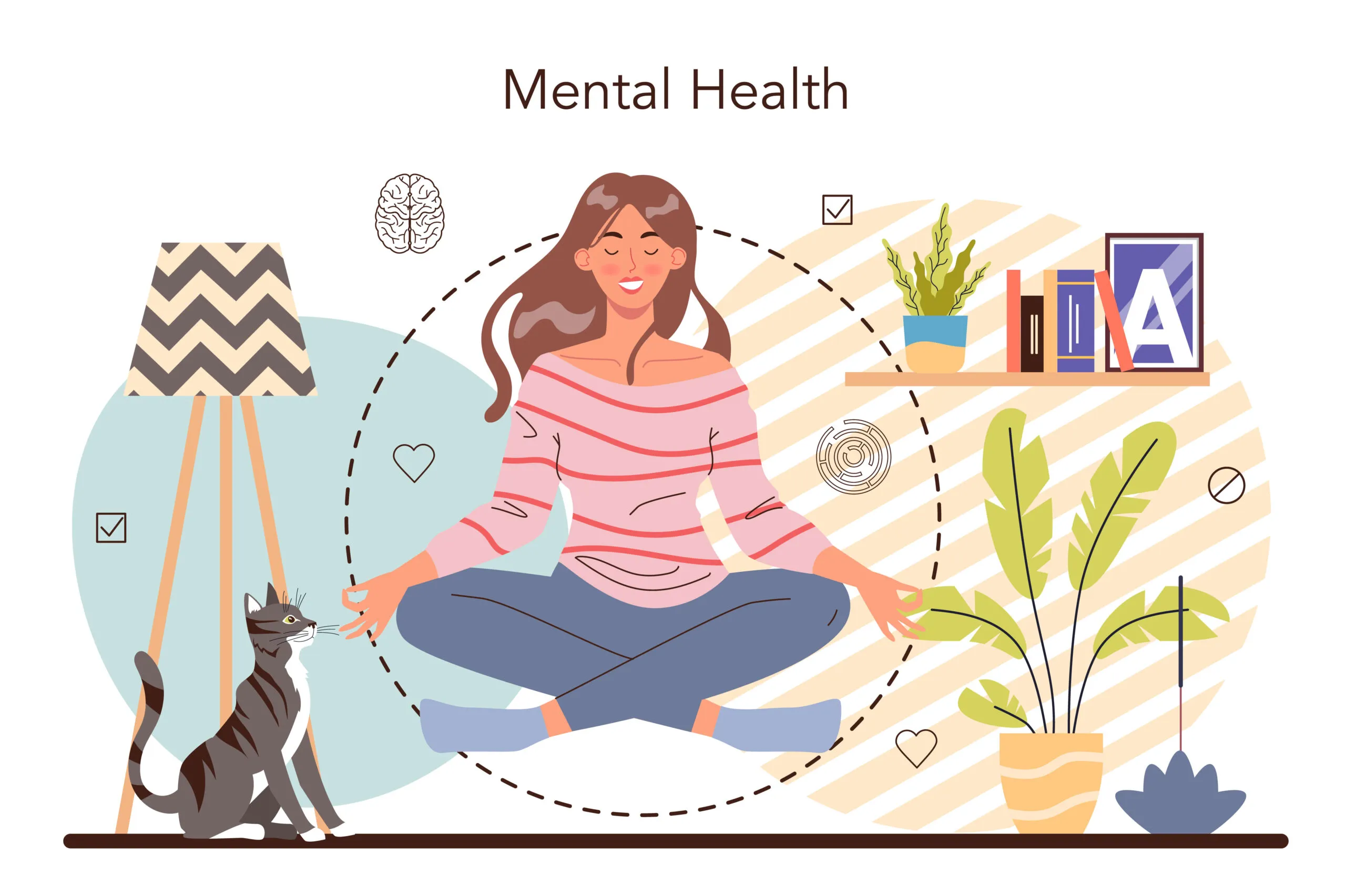Taking care of your health is a lifelong commitment that involves physical, mental, and emotional well-being. As women, maintaining a balanced lifestyle is especially important because our bodies experience unique health challenges throughout life, from menstruation and pregnancy to menopause. Adopting healthy habits can empower you to feel your best and thrive at any stage of life.
In this article, we’ll share some essential health tips that every woman should follow to enhance her well-being, increase longevity, and foster a positive mindset.
1. Prioritize Regular Physical Activity
Exercise is one of the most effective ways to maintain overall health, and women of all ages should make physical activity a part of their routine. Regular exercise strengthens the heart, bones, and muscles while boosting energy levels and supporting mental health.
Why Exercise Matters for Women:
- Bone Health: Women are at greater risk of osteoporosis, a condition that weakens bones, especially after menopause. Weight-bearing exercises like walking, running, and strength training can help prevent bone loss.
- Mental Health: Physical activity stimulates the release of endorphins, which are hormones that help reduce stress, anxiety, and depression.
- Weight Management: Exercise plays a crucial role in controlling weight and maintaining a healthy body composition.
Aim for at least 150 minutes of moderate-intensity aerobic activity each week, along with strength-training exercises twice a week.
2. Eat a Balanced Diet
Nutrition is key to keeping your body functioning optimally. A balanced diet ensures that you get the right nutrients to support all of your body’s needs, from energy production to immune function.
Essential Nutrients for Women:
- Iron: Women are more prone to iron deficiency, especially during menstruation. Foods rich in iron include lean meats, beans, spinach, and fortified cereals.
- Calcium & Vitamin D: These nutrients are important for bone health. Dairy products, leafy greens, and fortified plant-based milks are excellent sources of calcium, while sunlight and fortified foods provide vitamin D.
- Healthy Fats: Omega-3 fatty acids found in fish, flaxseeds, and walnuts support heart health and reduce inflammation.
It’s also important to drink plenty of water to stay hydrated, as dehydration can affect energy levels, digestion, and skin health.
3. Prioritize Mental Health
Mental well-being is just as important as physical health. Women often juggle multiple roles—such as caregiving, work, and maintaining a household—and the pressures can sometimes lead to stress, anxiety, or depression. Taking care of your mind should be a top priority.
Ways to Support Your Mental Health:
- Practice Self-Care: Take time for activities that make you feel good, such as reading, journaling, meditating, or spending time in nature.
- Seek Support: Don’t hesitate to reach out for professional help if you experience symptoms of mental health disorders. Therapy and counseling are powerful tools for managing stress and improving emotional well-being.
- Get Enough Sleep: Sleep is crucial for mental health. Adults should aim for 7-9 hours of quality sleep per night to allow the brain and body to recover and recharge.
4. Stay on Top of Preventive Health Care
Routine check-ups and screenings can help detect health issues early, when they’re more treatable. Women should make a habit of seeing their healthcare provider regularly for preventive care.
Key Screenings for Women:
- Pap Smears & HPV Testing: These tests screen for cervical cancer. Women should start having Pap smears at age 21 and continue every three years or as advised by their doctor.
- Mammograms: Women over 40 should discuss mammograms with their healthcare provider. Early detection of breast cancer is crucial for successful treatment.
- Blood Pressure and Cholesterol Checks: These tests help assess your heart health. High blood pressure and cholesterol are risk factors for cardiovascular disease.
In addition to screenings, make sure to get your vaccinations up to date, including the flu shot and any other vaccines recommended by your doctor.
5. Manage Stress Effectively
Chronic stress can have detrimental effects on both physical and mental health. It’s essential for women to manage stress effectively to avoid burnout and to promote long-term health.
Stress-Relief Techniques:
- Exercise: As mentioned earlier, exercise is a great way to reduce stress and improve mood.
- Mindfulness and Meditation: Practicing mindfulness and meditation can help you stay grounded and focused, reducing anxiety and stress.
- Deep Breathing: Simple deep breathing exercises can help lower cortisol levels and improve relaxation.
Engage in activities that help you unwind, whether it’s reading, listening to music, or spending time with loved ones.
6. Maintain a Healthy Weight
Carrying excess weight can increase the risk of developing chronic diseases such as diabetes, heart disease, and high blood pressure. Maintaining a healthy weight involves eating a balanced diet, exercising regularly, and being mindful of portion sizes.
Tips for Healthy Weight Management:
- Eat Mindfully: Pay attention to your hunger and fullness cues, and avoid emotional eating.
- Stay Active: Incorporate physical activity into your daily routine. Walking, biking, and swimming are great ways to stay active.
- Track Your Progress: Keep track of your food choices and exercise routines to stay accountable and motivated.
Remember, the goal is to maintain a healthy weight that supports your body’s needs, rather than striving for perfection.
7. Take Care of Your Skin
Healthy, glowing skin is often a reflection of overall health. Women should develop a skincare routine that suits their skin type and addresses any specific concerns.
Essential Skincare Tips:
- Cleanse Gently: Use a gentle cleanser that matches your skin type. Avoid harsh soaps that can strip the skin of its natural oils.
- Moisturize Regularly: Hydrated skin is less prone to irritation and wrinkles. Choose a moisturizer suited to your skin type.
- Sun Protection: Protect your skin from harmful UV rays by applying sunscreen with at least SPF 30, even on cloudy days. Wearing hats and protective clothing is also recommended.
A consistent skincare routine can keep your skin healthy and glowing, while reducing the risk of premature aging and skin cancers.
8. Strengthen Relationships and Social Connections
Social connections are vital to your emotional well-being. Surround yourself with supportive people who encourage you to be the best version of yourself. Healthy relationships can help you navigate life’s challenges, and they provide a source of joy and comfort.
Nurturing Relationships:
- Communicate Openly: Be open with loved ones about your feelings and listen to theirs in return.
- Make Time for Socializing: Even if you have a busy schedule, make an effort to spend time with friends and family.
- Build a Support Network: Surround yourself with people who uplift you, whether it’s through work, family, or social groups.
Strong, meaningful relationships contribute to better mental health and overall life satisfaction.
9. Know Your Body
Every woman’s body is unique, and it’s important to understand and listen to what it tells you. Pay attention to changes in your body, whether they involve your menstrual cycle, weight, energy levels, or skin health.
Signs to Watch Out For:
- Abnormal Bleeding: Heavy or irregular periods may indicate hormonal imbalances or other health issues.
- Pain or Discomfort: Any unexplained pain, especially in the chest, abdomen, or pelvic area, should be addressed with a doctor.
- Fatigue: Persistent tiredness could be a sign of an underlying health condition, such as anemia or thyroid problems.
The more you understand your body, the easier it will be to detect potential health issues early and seek appropriate treatment.
Conclusion
Health is the foundation of a happy and fulfilling life. By following these essential health tips—prioritizing exercise, balanced nutrition, mental health, and regular screenings—you can empower yourself to live a healthier, more vibrant life. Remember, it’s never too late to start taking care of your body, and small changes today can lead to big improvements tomorrow.




